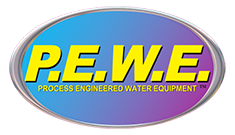
Water is one of our planet’s most precious resources, essential for life, agriculture, industry, and energy production. However, with increasing population growth and climate change, the demand for clean water continues to rise, placing a lot of pressure on our water supply systems. Water recycling, has emerged as a critical solution. Here, we explore the top five uses of water recycling and its importance in today’s society.
Agricultural Irrigation
Agriculture is one of the largest consumers of freshwater globally and water recycling can significantly relieve this pressure. Treated wastewater can be repurposed for irrigation, providing farmers with a reliable water source while reducing the demand for freshwater from rivers and aquifers. The technique used in agricultural water recycling removes organic matter and pathogens, allowing water to be safely used for crop irrigation.
Using recycled water for irrigation not only conserves freshwater but also improves soil health through the addition of nutrients found in treated wastewater. This practice can lead to increased crop yields and reduced reliance on chemical fertilizers, promoting a more sustainable agricultural system.
Economic and Environmental Benefits
Industries consume large volumes of water for various processes, including cooling, cleaning, and manufacturing. Water recycling within industrial settings can significantly cut costs and reduce environmental impact. Recycled water is often used for cooling systems to cool down machinery which reduces the strain on freshwater sources. Recycled water can also be employed in processes such as washing, rinsing, and even in some chemical processes.
Recycling water in industries not only lowers operational costs but also minimizes wastewater discharge. Furthermore, it can help industries comply with environmental regulations.
Landscape Irrigation
Water recycling is increasingly used for landscape irrigation, particularly in urban areas where green spaces are essential for aesthetics and environmental health. Parks, golf courses, and residential landscaping can all benefit from recycled water.
In regions prone to drought, using recycled water for landscaping can help maintain green spaces without depleting freshwater supplies. Using recycled water for irrigation helps reduce runoff and pollution from fertilizers and pesticides, promoting healthier urban environments.
Replenish Groundwater Supplies
Aquifer recharge involves directing recycled water back into underground aquifers to replenish groundwater supplies. This practice is essential for maintaining water balance in many regions, especially those facing a shortage of groundwater.
Aquifers replenished with recycled water can help communities develop sustainable water management strategies. It provides a buffer against drought and ensures a reliable water supply for future generations.
Make it Safe for Drinking
One of the most advanced applications of water recycling is the treatment of wastewater to make it safe for drinking. This process involves several rigorous treatment stages, including microfiltration, reverse osmosis, and advanced oxidation.
While the concept of drinking recycled water may seem intimidating to some, extensive monitoring and treatment processes ensure its safety. Public education campaigns have been crucial in alleviating concerns and promoting acceptance of recycled drinking water.
Water recycling is a necessary strategy for ensuring the sustainability of our water resources in the face of growing challenges. If you’re interested in using reliable water recycling equipment, but you still have questions, then contact us today. Our specialists take your unique situation into consideration so we can cater options to meet your needs, however specific they are. Get in touch with us today to get started.


